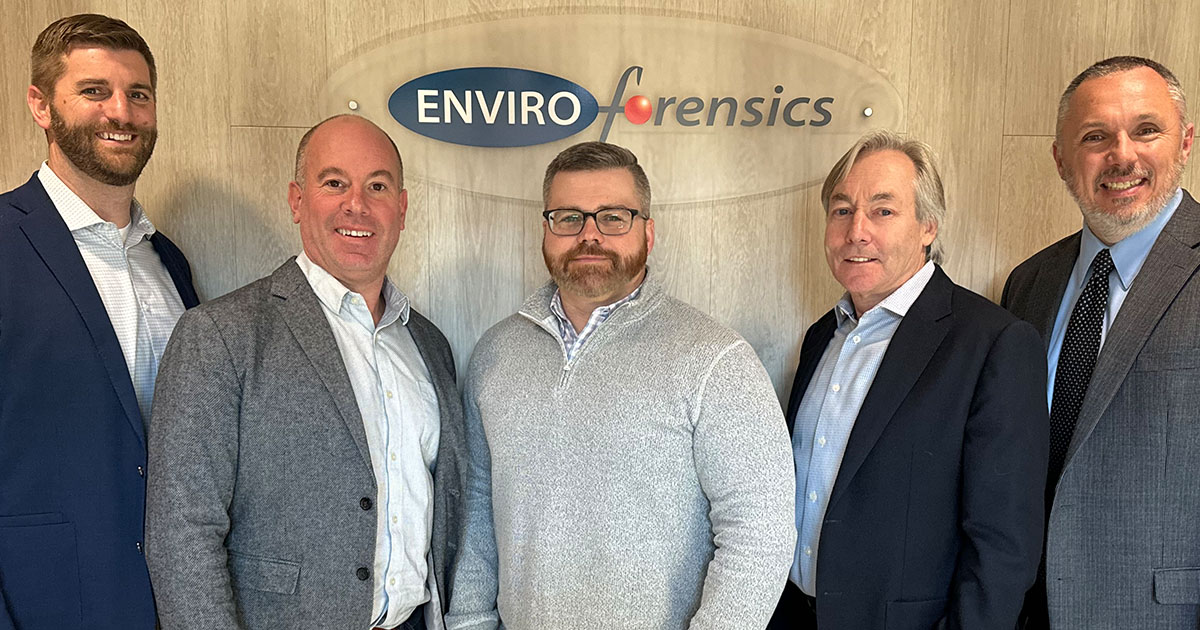
It’s important to understand your rights and exercise them when it comes to your insurance coverage. The decisions made during an environmental investigation will impact your future business, finances, and even your reputation. Be sure your defense against a claim serves you.
What I want to tell you about today are the obligations that your insurance carriers have when they defend a claim under Reservation of Rights (ROR). I want to tell you this because there is a lot of misinformation that people have on this issue and policyholders have rights that they need to know. When people don’t know their rights, decisions can be made that could adversely affect their businesses, their financial future, and even their reputation.
What you need to know about insurance carriers and how they operate
- The most important thing to understand about what I am telling you is that managing insurance claims is a big business and the less that insurance companies pay out in losses and damages, the better the financial statement for that insurance company will look.
- The second most important thing to understand is that the person handling your claim may be your friend but probably is not. The claim handler has a job to do and they are oftentimes evaluated and rewarded on, among other things, metrics associated with how much your claim costs in comparison to “similar” claims.
- Additionally, most insurance carriers do not have separate environmental claim departments. Instead, the claim handler dealing with a complex environmental claim could also be handling claims associated with theft, automobile accidents, home fires, hail, and wind damage, the list goes on. Point being, they may not be very sophisticated in terms of understanding your environmental claim. Knowing these basic facts will help you better understand the insurance claim process and why investigating and cleaning up environmental problems can take an inordinately long time and can be surprisingly contentious along the way.
- The next thing that will be helpful for you to understand is different states interpret insurance policies and the obligations of an insurer differently. Couple the nuances from state to state with an unsophisticated claims handler and you have a recipe for confusion. In turn, confusion can lead to a project stalling, by slowing down the environmental investigation, creating unnecessary legal arguments, obfuscating the facts of the matter, requesting extensions from the regulatory agencies, not paying consulting and legal bills timely, and adding more layers such as hiring consultants to oversee consultants.
Like most people, claims handlers address easier tasks before the harder more confusing tasks and it is not uncommon for a claim handler to have as many as 125 to 175 claims in their file. There might be one or two claims that are easier than yours. But remember, as an insured, you have rights, and one of those rights is to have a defense against your claim and such a defense must serve you.
What you need to know about your insurance coverage: You have the right to select your own lawyer and typically your own consultant
Understanding your rights as an insured will benefit you in several ways. As an insured one of the rights you have is the right to select your own lawyers and typically your own environmental consultant. To put this in context, the attorney defending your claim works for you and not your insurance carrier. The insurance carrier must pay for the defense of the claim. Within reason, the “duty to defend” by an insurance carrier includes paying for your legal defense and includes assessing and determining your liability and exposure. The only way to understand your liability and exposure is to collect enough data to determine the extent and magnitude of the problem and to determine the cost of the cleanup. One of the areas where I see problems is when the insurance carriers select or appoint a lawyer to defend a policyholder. Another area is when an insurance carrier selects a consultant to oversee the consultant that you have selected to conduct the environmental investigation.
You need to know and trust your attorney
In the former, you have to understand who employs your attorney. When an insurance company retains a lawyer to “represent” you on your claim, this is referred to as a tripartite relationship. A tripartite relationship refers to the relationship among an insurer, it’s insured, and defense counsel retained by the insurer to defend the insured against third-party claims. This relationship can present actual or potential conflicts between the insurer and the insured, placing defense counsel in a difficult, and often confusing, positions.
There are all kinds of ways in which an attorney representing you, but retained by the insurance carrier on your behalf can have conflicts of interest. In fact, it is a very slippery slope for attorneys to represent you on your claim while having an ongoing relationship with your carrier.
From the most basic business fact, an attorney representing you but retained by the carrier implies that the attorney has an ongoing book of business with that carrier. In other words, they get work from the insurance carriers as their basic book of business. The attorney solicits and is retained by insurance carriers because the insurance carriers like the results that they get for them. Your attorney has to, by law, represent you, but practically speaking they cannot afford to upset their ongoing book of business, so fighting for your specific needs is generally tempered or moderated. With respect to specific conflicts of interests, the legal world is chalked full of examples where conflicts arise under the circumstances where the carriers select and appoint your defense counsel.
I have worked numerous projects where the insurance carriers have hired and retained defense counsel and more often than not the results for my clients, the policyholder, are not very favorable.
Make sure your assigned environmental consultant works for you and not your insurance carrier
With respect to other tactics designed to control defense costs, carriers employ consultants to oversee your environmental consultant. In principle, it is understandable that a claim handler with little sophistication would hire oversight consultants. They will use these consultants to review work scopes and invoices with the intention of saving money. The problem is that in order to save money, the oversight consultant often times will determine that reasonable work is unnecessary or that work is not necessary because the regulatory agency did not specifically request a certain task. You need to understand that regulatory closure does not necessarily equate a clean property. If a property is not cleaned up to at least commercial standards then your property value has not been restored.
You need to make financially sound environmental remediation decisions. Therefore, you must understand the difference between regulatory closure and environmental cleanup. For more information, read How Clean is Clean Enough? Regulatory Closure vs. Environmental Cleanup
The field of environmental investigations is very mature and most consultants understand that a groundwater plume must be delineated vertically (in-depth) and horizontally (in length). Data must be collected to determine whether the contamination is causing harm to human health or the environment. Remediation should consist of abating the problem, protecting the public health and restoring the value of the impaired property.
Oversight consultants try to show their value by reducing the amount of work necessary to achieve the answers to those questions. Usually, the work will be necessary, but the oversight consultants drag out the investigation process unnecessarily to show that they are saving the insurer money. They will reduce the work scopes by cutting back on a monitoring well here or there or reducing the number of samples being collected. The result is a long back and forth process between your consultant and the regulatory agency that ends up taking many years instead of several months.
The other area we typically see is that the oversight consultant only wants to conduct work that is specifically asked for by the regulatory agency. The problem is that the project manager for the regulatory agency has dozens and dozens of files. They may miss a component of work not included in a work scope during a particular review, but before the site is closed they will require the work to be completed before they will close the site and issue a no further action letter (NFA). Again, the back and forth results in a very long claim management process that could have been completed in a much shorter time were it not for the oversight consultant.
Finally, oversight consultants are in business to show their value and many try to show their value by ”saving” money and that means they pick apart reasonable invoices, suggesting that the work was excessive, conducted at too high a rate, or that they need more information to justify the invoice. These tactics are designed to present a short-term picture of saving money. In reality, the work needs to be conducted and is conducted, but over a much longer period of time.
Know your rights and protect yourself from future liability

The best thing that you can do is to understand your rights. Understand that you need and you have a right to select your own counsel to represent you against the claims.
Understand that you probably have the right to select your own environmental consultant and find a consultant that will be strong enough to understand what needs to be done and how to get it done in a timely manner. Your consultant needs to be able to go toe to toe with the oversight consultant if that is what it takes to defend your claim in a timely manner.
Dealing with environmental contamination is a lengthy process by the very nature of removing chemicals from soil, vapor, and groundwater. You do not want it to take longer than necessary, because your claim handler is evaluated on how much was spent on your claim or the insurance carriers are more interested in their company financials than on providing you with the best defense against your claim.
Whether you want to use old insurance policies to pay for your environmental cleanup fees or just want to ask us questions, contact us today for a confidential consultation.
 Stephen Henshaw, CEO at EnviroForensics & PolicyFind has over 30+ years of experience and holds professional registrations in numerous states. Henshaw serves as a client manager and technical manager on complex projects involving contaminated and derelict properties, creative litigation, deceased landowners, tax liens, non-performing banknotes, resurrecting defunct companies and cost recovery. Henshaw’s expertise includes a comprehensive understanding of past and current industry and waste handling practices and the fate and transport of chlorinated solvents in soil and groundwater. He has served as a testifying expert for plaintiffs and defendants on high profile cases involving causation and timing of releases, contaminant dispersion, allocation, damages, past costs, and closure estimates. He has a strong knowledge of state and federal regulations, insurance law, RCRA, and CERCLA. He has managed several hundred projects including landfills, solvent and petroleum refineries, foundries, metal plating shops, food processors, dry cleaners, wood treating facilities, chemical distribution facilities, aerospace manufacturing facilities, and transporters and provides strategy instrumental in funding projects and moving them to closure.
Stephen Henshaw, CEO at EnviroForensics & PolicyFind has over 30+ years of experience and holds professional registrations in numerous states. Henshaw serves as a client manager and technical manager on complex projects involving contaminated and derelict properties, creative litigation, deceased landowners, tax liens, non-performing banknotes, resurrecting defunct companies and cost recovery. Henshaw’s expertise includes a comprehensive understanding of past and current industry and waste handling practices and the fate and transport of chlorinated solvents in soil and groundwater. He has served as a testifying expert for plaintiffs and defendants on high profile cases involving causation and timing of releases, contaminant dispersion, allocation, damages, past costs, and closure estimates. He has a strong knowledge of state and federal regulations, insurance law, RCRA, and CERCLA. He has managed several hundred projects including landfills, solvent and petroleum refineries, foundries, metal plating shops, food processors, dry cleaners, wood treating facilities, chemical distribution facilities, aerospace manufacturing facilities, and transporters and provides strategy instrumental in funding projects and moving them to closure.



